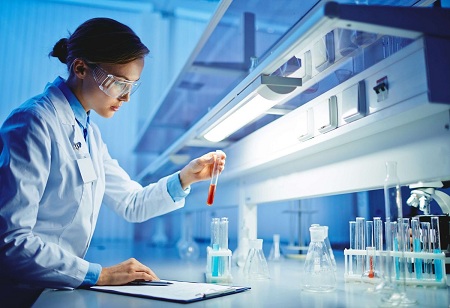Fiona Catherine Jerry | Thursday, 11 May 2023

Automation and streamlining of the research process are accelerating drug discovery. Artificial intelligence and machine learning have enabled researchers to identify potential drug targets and develop more effective treatments. This has resulted in faster and more accurate drug development, potentially benefitting millions worldwide. This is particularly critical for diseases such as cancer, where treatments need to be developed quickly and accurately. AI and machine learning have allowed researchers to make significant progress in this area, and more advances are expected in the future.
This is why AI and machine learning are so significant for medical research, and why so much effort is put into advancing these technologies. As AI and machine learning continue to improve, the potential for even greater progress in the medical field is limitless. They help researchers develop new drugs faster and with enhanced accuracy and precision. These technologies are transforming the way medicines are discovered and developed, making them more accessible to people around the world. AI and machine learning can also be used to improve the accuracy and detect ability of diagnostics and treatments. Additionally, they can help generate personalized treatments to maximize patient outcomes.
Robotic Process Automation automates repetitive tasks, freeing up resources for more complex tasks. This enables scientists to focus on new drug development without being bogged down by mundane tasks. RPA also ensures accuracy and precision in drug discovery and development, leading to better quality drugs and faster access to them. This means that patients benefit from faster treatment access, leading to improved outcomes. Additionally, RPA enables researchers to develop more cost-effective treatments, reducing the overall cost of healthcare. RPA also helps to reduce drug development time from years to months, which contributes to faster access to lifesaving treatments for patients. This improves patient outcomes and reduces healthcare costs. RPA technology also enables healthcare providers to access real-time healthcare data, enabling them to make better-informed decisions that can save lives. Furthermore, RPA can streamline administrative tasks, freeing up resources to focus on patient care. For example, RPA can help automate claims processing, streamline medical billing, and monitor patient records to ensure accuracy and up-to-date information.
Artificial intelligence (AI) is one of the technologies that has revolutionized drug discovery. AI can analyze vast amounts of data to identify potential drug targets and predict drug interactions. Additionally, AI can also be used to optimize drug delivery systems, ensuring drugs reach their target with maximum efficacy. AI has enabled drug discovery to be faster and more efficient, resulting in more effective treatments for a wide range of diseases. This has enabled pharmaceutical companies to develop and deploy treatments faster, saving countless lives. AI can also be used to monitor patients' responses to treatments, including tracking adverse effects. This helps to ensure the safety of drug treatments and improves medical diagnoses. AI can also be used to identify patterns in large patient datasets, allowing for earlier and more accurate diagnoses of diseases. For instance, AI-powered systems can quickly analyze large amounts of data to identify potential new treatments for diseases, enabling pharmaceutical companies to develop novel drugs 10-50 times faster than traditional methods.
Machine learning enables drug discovery to be done faster and more accurately, leading to new and more effective treatments. It also helps to reduce costs, as the process of drug discovery is incredibly expensive. Moreover, machine learning can help to identify previously unknown correlations and interactions between drug compounds and their effects on the body. This can lead to more personalized treatments, tailored to the individual, and the development of new drugs with fewer side effects. In addition, machine learning can reveal different pathways for drug delivery. This allows for more efficient delivery of medications to the body and reduces the amount of time it takes for a drug to start working. For instance, machine learning can be used to identify molecules in the body that can be used to transport drugs to their target sites, resulting in faster and more effective delivery of drugs to the body. Technologies revolutionizing drug discovery have allowed for faster, more efficient drug discovery processes. This has the potential to lead to more effective treatments for a variety of diseases. AI and ML are also used to analyze large datasets of patient information, allowing for more personalized treatments and better outcomes for patients. Additionally, automated systems are being used to model protein structure and simulate drug interactions with the body. This has the potential to revolutionize the drug discovery process, leading to more effective treatments and improved patient outcomes. This could significantly reduce the amount of time and cost associated with drug discovery, allowing for more efficient treatments for a variety of diseases. Moreover, AI and ML could be used to identify new disease targets, predict drug responses, and optimize drug delivery.